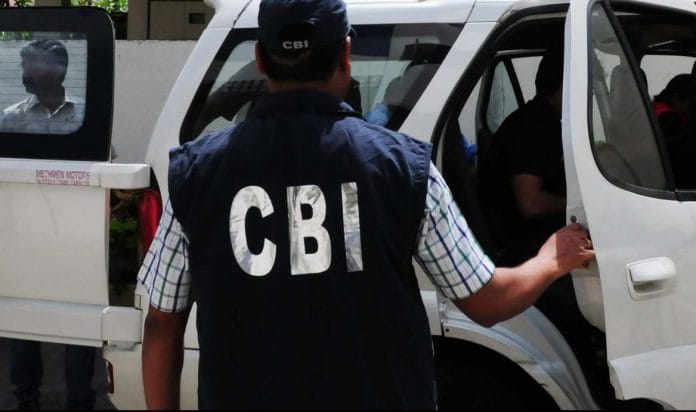Proposal, which includes govt employees, says if an offence doesn’t qualify for criminal prosecution, CBI can ask ministry in charge to take action.
New Delhi: The CBI may soon have to stop at suggesting disciplinary proceedings for bureaucrats and government staff accused of graft offences, and not offer recommendations on the nature of penalties they ought to face.
The Central Vigilance Commission (CVC) is “actively considering” moving a proposal to this effect. If it comes through, the ministries to whom the government employees report will decide the quantum and nature of penalties, and not the CBI.
According to the proposal, if the CBI deems a certain staffer guilty of a misdemeanour that doesn’t qualify for criminal prosecution, it should just ask the ministry or department in charge to take action. What that action is – ranging from termination of service to temporary pay cuts – should no longer be the CBI’s outlook, it suggests.
Also read: Prevention of corruption law amended to protect bankers & former bureaucrats
The proposal seeks to curtail the CBI’s brief at a tough time for the agency. While it finds itself in the midst of an alleged power struggle in its top echelons, the Prevention of Corruption (Amendment) Act, 2018, passed by Parliament last month, obligated the CBI and other investigating agencies to seek a competent authority’s nod before starting an inquiry against public servants.
Major vs minor
According to highly placed government sources, the CVC has sought the CBI’s opinion on the proposal and also discussed it with the Department of Personnel and Training (DoPT), as well as the ministry of home affairs (MHA). Both the DoPT and the MHA, sources said, have given a positive response to the proposal.
A senior government official privy to the development said the proposal only reiterated the law on the books.
According to the official, many corruption cases investigated by the CBI are often not serious enough to warrant criminal prosecution. They are instead minor irregularities that just require disciplinary action by their reporting authority, the official added.
“In such cases, the CBI forwards its report to the ministry or department concerned recommending disciplinary action while also suggesting the nature (major or minor) of penalty,” the official said.
This, he added, was a violation of MHA directives issued in 1969 since they said the CBI ought to just recommend disciplinary action.
“Only the disciplinary authority (the ministry/department), not the CBI, is empowered to decide the nature of the penalty,” the official said.
“The authority can, however, take the advice of the CVC in deciding the penalty,” the official added.
Also read: Cosy with CBI officials, caterer of Delhi club helped IAS, IRS officers stash loot
Explaining the “problem” with the way things function now, another senior government official said the disciplinary authority often “blindly” followed the CBI’s recommendations.
Major penalties comprise dismissal or removal from service with no retirement benefits such as pension and gratuity, no government jobs in the future, compulsory retirement of an employee without forfeiting superannuation benefits, or reduction in rank, among others. Minor penalties include censure, temporary reduction in pay.
Sources said that, if effected, the proposal will spell relief for officials facing disciplinary action as their respective disciplinary authority will decide the nature of punishment.







A welcome move, in consonance with the law. Quantum of punishment is to be decided / awarded by the competent disciplinary authority, after the enquiry has been completed. The conclusions / findings of the enquiring authority, after a detailed examination of the facts of the case, have a direct bearing on the nature of the penalty to be imposed. 2. As an agency tasked with criminal investigation and prosecution of public servants, the CBI is competent to make a determination whether a trial is merited. If that bar is not crossed but it does not find the public servant completely innocent, its duty extends to recommending that a conventional departmental enquiry be initiated. Even that recommendation is not binding. There is no question of its recommending the nature of penalty even before the enquiry is initiated, which might not find the officer guilty.